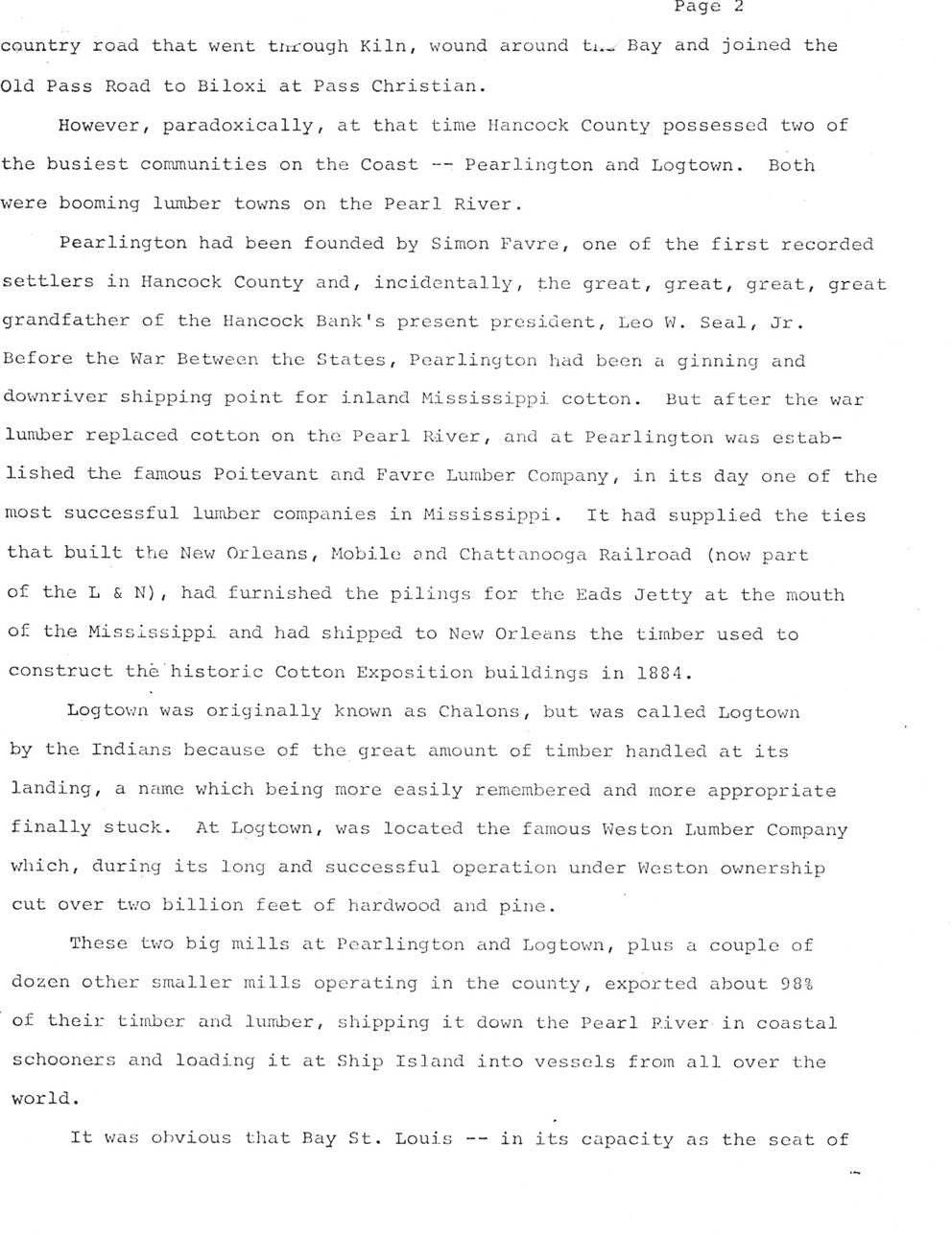This text was obtained via automated optical character recognition.
It has not been edited and may therefore contain several errors.
country road that went tnrough Kiln, wound around ti._ Bay and joined the Old Pass Road to Biloxi at Pass Christian. However, paradoxically, at that time Hancock County possessed two of the busiest communities on the Coast -- Pearlington and Logtown. Both were booming lumber towns on the Pearl River. Pearlington had been founded by Simon Favre, one of the first recorded settlers in Hancock County and, incidentally, the great, great, great, great grandfather of the Hancock Bcink1 s present president, Leo W. Seal, Jr. Before the War Between the States, Pearlington had been a ginning and downriver shipping point for inland Mississippi cotton. But after the war lumber replaced cotton on the Pearl River, and at Pearlington was established the famous Poitevant and Favre Lumber Company, in its day one of the most successful lumber companies in Mississippi. It had supplied the ties that built the New Orleans, Mobile and Chattanooga Railroad (now part of the L & N), had furnished the pilings for the Eads Jetty at the mouth of the Mississippi and had shipped to New Orleans the timber used to construct the historic Cotton Exposition buildings in 1884. Logtown was originally known as Chalons, but was called Logtown by the Indians because of the great amount of timber handled at its landing, a muue which being more easily remembered and more appropriate finally stuck. At Logtown, was located the famous Weston Lumber Company which, during its long and successful operation under Weston ownership cut over two billion feet of hardwood and pine. These two big mills at Pearlington and Logtown, plus a couple of dozen other smaller mills operating in the county, exported about 98% of their timber and lumber, shipping it down the Pearl River in coastal schooners and loading it at Ship Island into vessels from all over the world. It was obvious that Bay St. Louis -- in its capacity as the seat of

Hancock Bank 75th-Anniversary-02